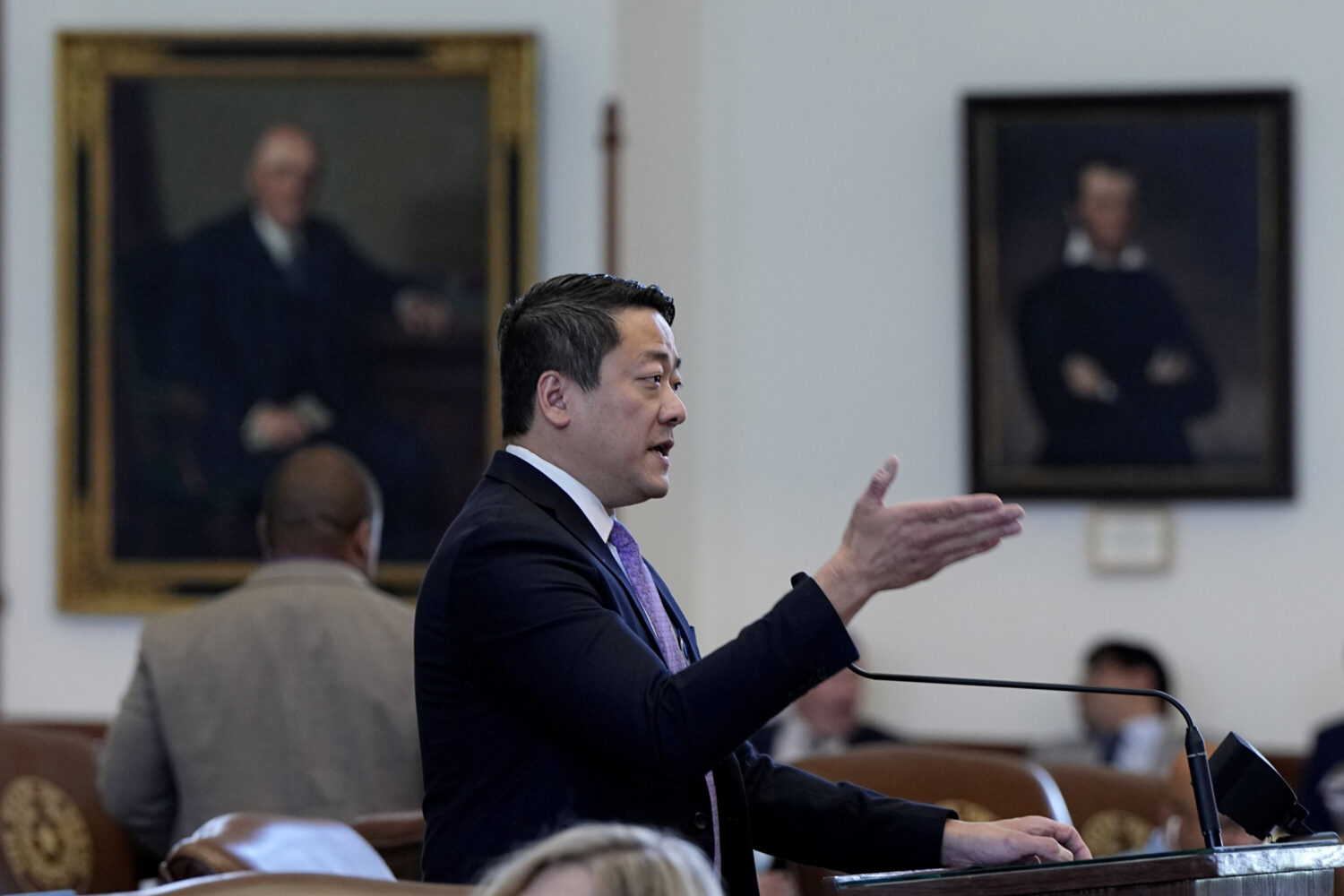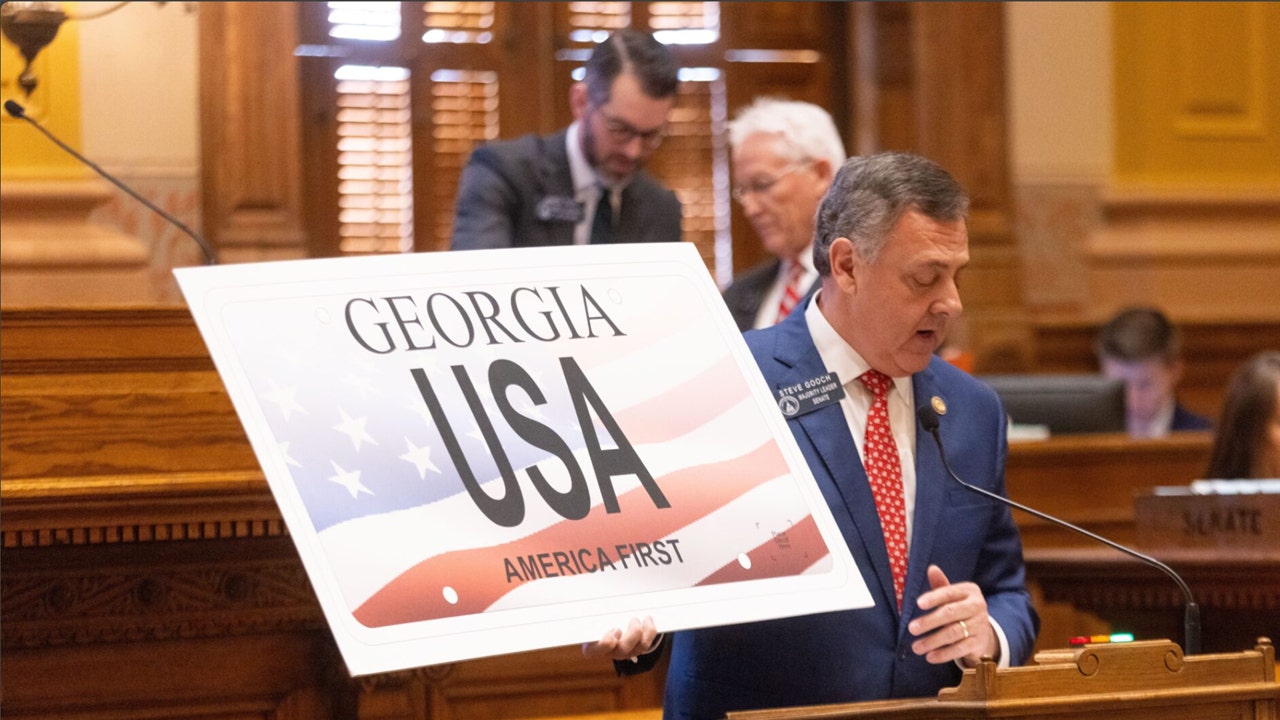World
Poland is done sending arms to Ukraine, Polish leader says as trade dispute escalates
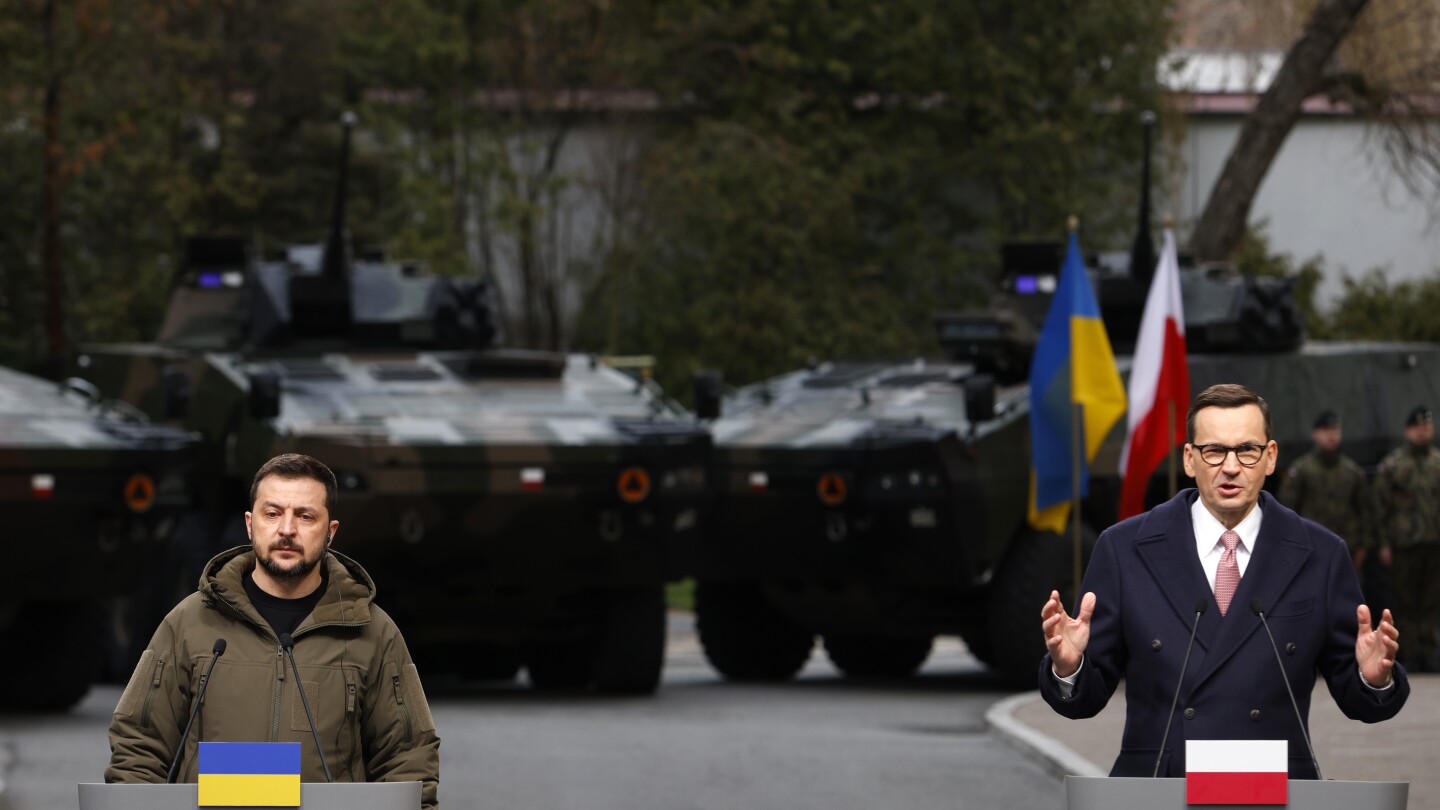
WARSAW, Poland (AP) — Poland’s prime minister said his country is no longer sending arms to Ukraine, a comment that appeared aimed at pressuring Kyiv and put Poland’s status as a major source of military equipment in doubt as a trade dispute between the neighboring states escalates.
Prime Minister Mateusz Morawiecki said in an interview late on Wednesday that Poland is no longer transferring weapons to Ukraine. He made the comment as his populist party faces pressure from a far-right party in a national election on Oct. 15. The far-right party, Confederation, says Poland is not getting the gratitude it deserves for arming Ukraine and accepting its refugees.
“We are no longer transferring any weapons to Ukraine because now we will arm ourselves with the most modern weapons,” Morawiecki said in an interview on Polsat, a private television broadcaster. The prime minister then spoke of a military modernization plan underway, spurred by fears of Russian aggression in the region.
A government spokesman, Piotr Mueller, appeared to confirm Thursday that Warsaw would not agree to more military aid. He said the country was now only providing supplies of ammunition and armaments that had previously been agreed to, noting that “a series of absolutely unacceptable statements and diplomatic gestures appeared on the Ukrainian side.”
Poland has supplied Ukraine with a wide range of weaponry, including Leopard 2 tanks and Soviet-era MiG fighter jets.
A leading security and defense expert, Michal Baranowski, said that Poland gave most of what it could give earlier in the war, and with no plans for shipments of major equipment soon he doesn’t see a threat to Ukraine’s capabilities in the near term. Still, he considers the comments as troubling for Ukraine as its seeks to maintain Western support in the war unleashed by Russia.
“The message is very bad, both for Poland’s reputation but also because Poland has been one of the chief advocates of military aid to Ukraine. Saying Poland will not be sending more weapons means that Poland can no longer play this role,” said Baranowski, managing director of Warsaw-based GMF East, part of the German Marshall Fund think tank.
He said Poland’s attempt to show toughness toward Kyiv should be understood in the context of the election campaign. In response to Morawiecki saying Poland would now focus on modernizing its own forces, Baranowski noted that Poland is capable of both modernizing its military and continuing to help Ukraine.
Donald Tusk, a top opposition leader, accused Morawiecki and other ruling authorities of a “moral and geopolitical scandal of stabbing Ukraine in the back politically when they decide to fight on the Ukrainian front, just because it will be profitable for their campaign.”
Emotions have been running high after Poland, Hungary and Slovakia last week announced a new ban on Ukrainian grain imports, saying they wanted to protect their farmers from a glut of Ukrainian grain in their markets. The grain lowers prices for local farmers and hurts their livelihood. Kyiv responded with a complaint at the World Trade Organization against the three countries that sparked even more angry reactions from Poland.
Polish and Ukrainian agriculture ministers said Thursday they were working to resolve the situation in a way that takes the interests of both countries into account. Meanwhile, Ukraine was lifting its complaint against Slovakia as the two sides sought a resolution, Slovak authorities said Thursday.
At the United Nations on Tuesday, Ukrainian President Volodymyr Zelenskyy suggested that the countries opposing Ukraine on grain were in fact working on Russia’s behalf. Poland urgently summoned the Ukrainian ambassador to complain on Wednesday.
Morawiecki in the Polsat interview said that Poland would not take steps to threaten Ukraine’s security.
He said a NATO and U.S. hub in the Polish city of Rzeszow used for transporting weapons into Ukraine would not be affected. “We are not going to risk the security of Ukraine,” he said.
A senior U.S. government official told reporters in Brussels on Thursday that the United States does not view Morawiecki’s statements as a sign of Western unity cracking and expects to see continued leadership from Poland in the effort to help Ukraine.
The official noted that “each country that’s contributing to Ukraine has its own domestic politics and that’s just a reality. Some of these countries are in the middle of election cycles, so they’re also in the middle of messaging their publics.” The official requested anonymity to speak to reporters on the subject.
The German Foreign Ministry said Thursday that “we have taken note of the statement from the Polish side.”
The ministry added that “Ukraine continues to need our full support. It is important that we in Europe act decisively and in solidarity in this regard. Germany will support Ukraine humanitarianly, politically, economically and with weapons for as long as it needs us.”
___
Associated Press writers Lorne Cook in Brussels, Kirsten Grieshaber in Berlin and Karel Janicek in Prague contributed to this report.

World
Roman Empire Skeletons Found Under Vienna Soccer Field

Under a soccer field in a Vienna neighborhood along the Danube, archaeologists have found a mass grave dating to the era when the Roman Empire was battling Germanic tribes almost 2,000 years ago, experts announced this week.
The grave was discovered in October by a construction company doing renovations for the field in Vienna’s Simmering district, a team of archaeologists and historians at the Vienna Museum said in announcing its findings. The extraordinary discovery was tied to what they called a “catastrophic” military event, possibly one where Roman troops were badly defeated and fled the site quickly.
Radiocarbon dating traced the bones to approximately A.D. 80 to 234 — a period in which more than a dozen Roman emperors ruled, including Domitian and Trajan, who clashed with ancient Germanic people in the region. An analysis of other items found in the grave, including an iron dagger, lance points, scale armor and a cheek piece of a helmet, helped confirm the time period.
Near the foot of one skeleton, the archaeologists also discovered shoe nails that came from distinctive Roman military shoes called caligae.
The discovery of such skeletal remains is exceedingly rare, experts said, in part because ancient Romans almost exclusively practiced cremation until the third century A.D.
“For all of middle Europe from the first century, we don’t have any unburned, uncremated human remains,” said Michaela Binder, the lead anthropologist on the project. “So aside from the military aspect, it is an absolute unique chance to study the life histories of people in the first century A.D.”
She added, “We have the unique opportunity to study the lives of normal Roman soldiers.”
Martin Mosser, an archaeologist for the Vienna Department of Urban Archaeology who worked on the project, said that because Romans took great care with ritualized burials and cremation of bodies, the remains began to tell a story of what happened to the men buried there.
“The undignified nature of the burial site along with the deadly wounds found on each individual suggests a catastrophic military confrontation, possibly followed by a hasty retreat,” he said.
There are historical accounts of battles between Germanic tribes and the Romans on the border of the Roman Empire at the end of the first century, and the team called the grave the first physical evidence of such fighting in the area of modern-day Vienna. The remains could represent the start of the metropolis’s history, the team said — theorizing that a Roman defeat could have led to the expansion of a small military base a few miles away.
“It suggests a concrete reason for the buildup of Vindobona into a full-scale legionary fortress, which would take us to the founding moment of Vienna,” Mr. Mosser said, referring to the military base.
The evidence astonished the team. Mr. Mosser said that before this evidence surfaced, no Roman evidence had been found in this area of the city. “Nor could we have expected a Roman battlefield to be located in the Vienna area,” he said.
The remains in the grave belonged to at least 129 people, the archaeologists found, but the total number might exceed 150 as some bones were found intermixed.
All of the dead examined so far were men, mostly between 20 and 30 years old, and many had suffered ghastly injuries, particularly to their skulls, torsos and pelvises.
Experts said the wounds seemed to be from weapons like spears, daggers, swords and iron bolts from ranged weapons, such as crossbows, which suggested the dead were not executed but had perished in battle.
The bodies appeared to have been buried hastily, with many found lying on their stomachs or sides with limbs intertwined.
They were most likely professional Roman soldiers, according to David Potter, a professor of Greek and Roman History at the University of Michigan who was not involved in the research.
“I think we’ve got another moment reflecting a Roman defeat and a burial of troops after the fact,” he said, drawing parallels to how the bodies of Roman soldiers were handled after their forces suffered a brutal defeat at the hands of Germanic warriors in the Battle of the Teutoburg Forest in A.D. 9.
“You get a sense for the nature of battle from the injuries that these poor people have sustained,” he said, adding, “the other side had a lot of big clubs.”
The team in Vienna said its experts were only beginning their research and that DNA analysis could provide more information about the origins and living conditions of the people buried in the grave. The museum’s report also laid out plans to look more into the objects found in the grave.
On a personal level, Mr. Mosser said the case struck a chord. “With so many young individuals buried so irreverently, one inevitably thinks about the horrific wars of the more recent past as well as the present,” he said, adding, “The unfortunate conclusion: Humans have not become any wiser.”
World
South Korea presidential ouster part of Chinese strategy to 'expand its regional influence,' expert says
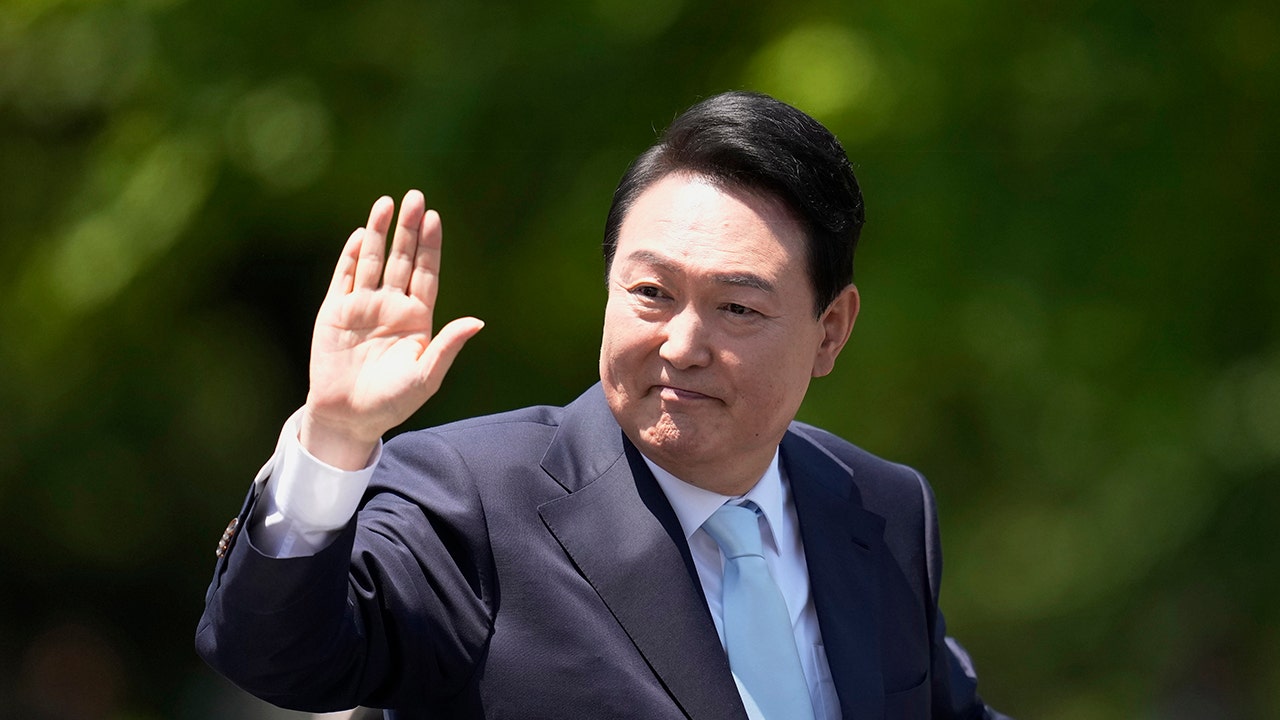
In a week that saw French right-wing leader Marine Le Pen banned from running for office, the South Korean Constitutional Court’s ouster of President Yoon Suk Yeol from office on Friday has critics looking towards Beijing’s hand in efforts to remove the leader from power.
“Yoon’s foreign and security policies stand in stark contrast to the pro-China figures long supported and controlled by the [Chinese Communist Party (CCP)],” Anna Mahjar-Barducci, Middle East Media Research Institute (MEMRI) project director, told Fox News Digital. She explained that those policies “posed a threat to Beijing’s long-term strategy of cultivating a pro-China faction in South Korea,”
Mahjar-Barducci claimed the CCP has used “overt economic cooperation, political donations, covert benefit transfers and even illegal sexual bribery” to cultivate “certain South Korean political figures over time, aiming to undermine the U.S.-South Korea alliance, weaken South Korea’s strategic independence and expand its regional influence at the expense of the U.S.”
SOME COUNTRIES TARGETED BY TRUMP TARIFFS SEEK NEGOTIATIONS, CHINA SAYS ‘NO WINNERS IN TRADE WARS’
Supporters of impeached South Korean President Yoon Suk Yeol stage a rally to oppose his impeachment in Seoul, South Korea, on March 8. (AP)
Mahjar-Barducci also claimed that one Korean activist who spoke to her on Friday told her that election fraud in South Korea had been organized in cooperation with China, whose government had unduly influenced the past two general elections.
The Associated Press reported on Friday that supporters of the ousted president were enraged by the decision. Kim Min-seon, a Yoon supporter, is quoted as saying it was the only way to deal with liberals blocking Yoon’s efforts to fight Pyongyang and Beijing’s campaigns to threaten South Korea’s democracy through cyberattacks, disinformation and technology theft — something denied by the opposition party.
Yoon had long provoked the ire of North Korean dictator Kim Jong-un over his plans to increase his country’s nuclear capacity. The former South Korean leader sought increased cooperation with the U.S. as a deterrent to the North Korean threat.
A spokesman from the Chinese embassy in Washington D.C. did not answer Fox News Digital questions on allegations the country interferes in Seoul’s politics. Questions sent to the South Korean embassy were not returned.
CHINA LAUNCHES LARGE MILITARY DRILLS AROUND TAIWAN TO ISSUE ‘SEVERE WARNING’
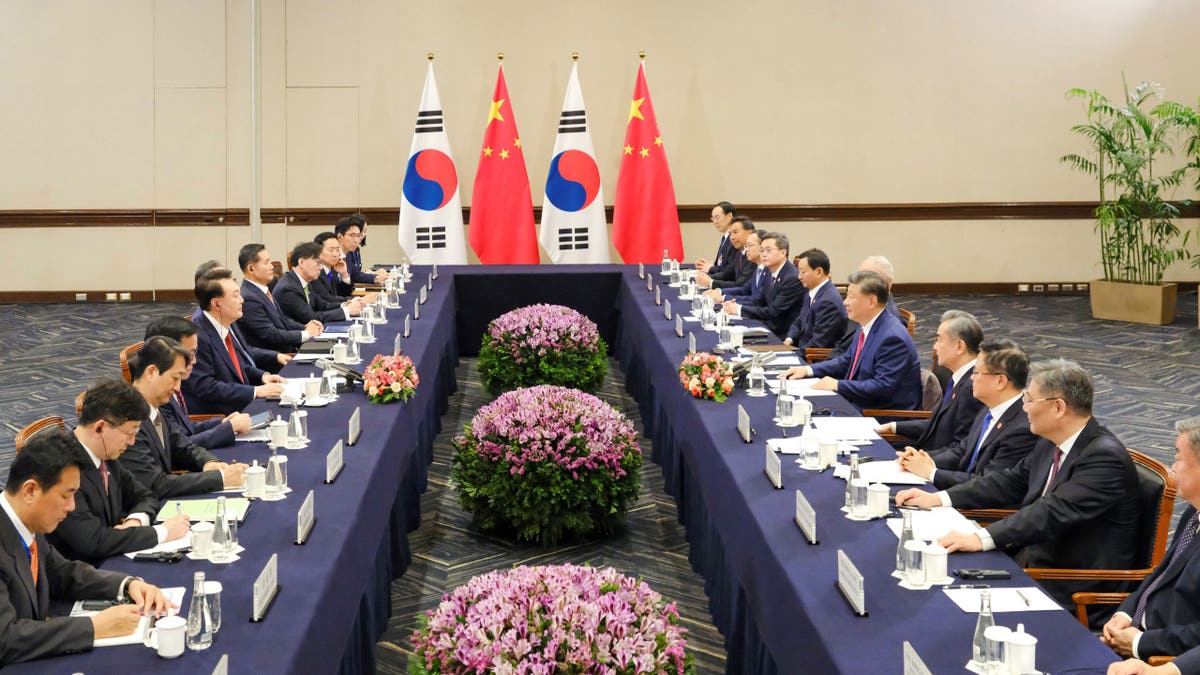
Chinese President Xi Jinping meets with South Korean President Yoon Suk-yeol on the sidelines of the 31st APEC Economic Leaders’ Meeting in Lima, Peru, on Nov. 15, 2024. (Ding Lin/Xinhua via Getty Images)
Mahjar-Barducci also explained that given the “intensive coverage by Beijing’s media” of Yoon’s dismissal, the CCP is “brimming with pride” and “extremely pleased” with the turn of events. Beijing “has already taken down two pro-American South Korean presidents, Park Geun-hye and Yoon Suk Yeol, which shows just how deep Beijing’s infiltration and influence in South Korea are,” she said.
“South Korea needs to be the strongest ally, along with Japan, of America,” Mahjar-Barducci continued. But Beijing is poising itself to “win over this important strategic area,” which the U.S. “cannot afford to lose.”
FRENCH RIGHT-WING LEADER MARINE LE PEN FOUND GUILTY OF EMBEZZLING PUBLIC FUNDS, BARRED FROM RUNNING FOR OFFICE
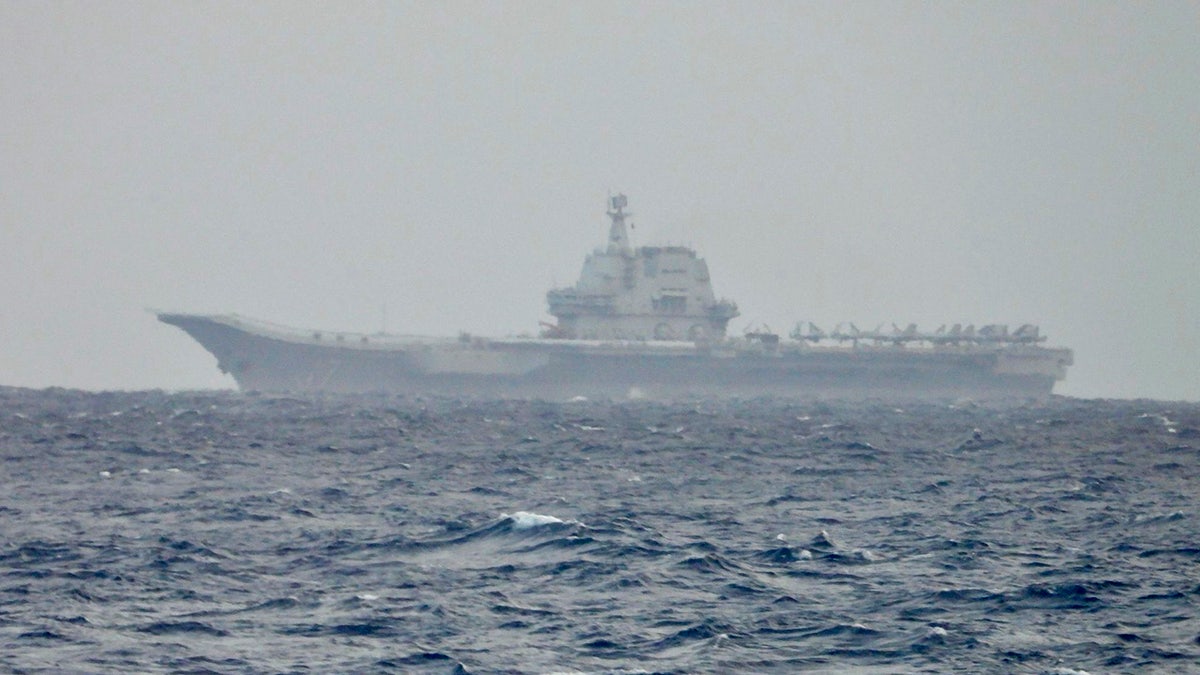
China’s Shandong aircraft carrier is seen near Taiwan on March 31. (Taiwan Ministry of National Defense via AP)
Mahjar-Barducci said Yoon’s removal is part of a “pattern… all over the world” of right-wing candidates being forbidden from seeking election, including Romanian right-wing presidential frontrunner Călin Georgescu and French right-wing politician Le Pen. “The judiciary has been weaponized once again,” she explained.
The CCP’s hand in South Korea comes at a time when Beijing is holding large-scale military drills around Taiwan, with 19 vessels from the Chinese navy being spotted in the waters surrounding Taiwan between Monday and Tuesday morning. Mahjar-Barducci said that while Beijing has attempted to make such drills “a new normal,” it has also warned that the “drills could unexpectedly turn into a real war.”
South Korea will hold elections for a new president in two months. Fox News Digital has reported that surveys show liberal opposition Democratic Party leader Lee Jae-myung is “an early favorite” for the position.
World
Brussels, my love? Europe's declarations of independence
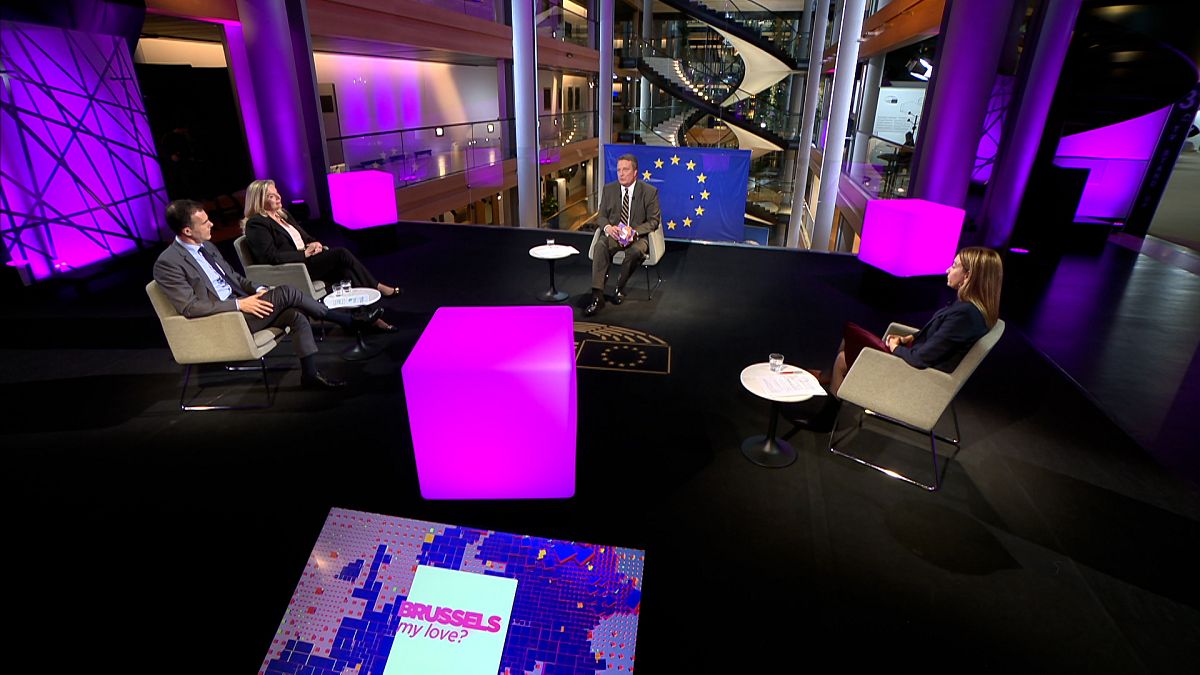
Energy bars, water, medication – the EU Commission wants citizens to have a 72-hour survival kit at home. Why? To be better prepared for possible crises such as natural disasters, industrial accidents or cyber and military attacks.
But this is only on an individual level. Politically, Europe is currently taking steps to become more independent and to arm itself on all fronts. Is it working?
Members of the European Parliament Zeljana Zovko (EPP) from Croatia, Sandro Gozi (Renew) from France and Evin Incir (S&D) from Sweden discussed this in this edition of our weekly talk show, this time from the EP in Strasbourg.
Friedrich Merz, Germany’s next chancellor, said it bluntly on election night: his “absolute priority” would be to strengthen Europe as quickly as possible “in order to become truly independent from the USA”.
The openly hostile attitude of the Trump administration has abruptly accelerated discussions about strategic autonomy – an idea that French President Emmanuel Macron has had since 2017. No wonder Merz and Macron are already best friends.
From chip production to critical medicines, from securing supply chains to arming the military – Europe wants to stand on its own two feet in the face of Russian aggression, Chinese assertiveness and American protectionism.
The continent sees itself as the lone torchbearer of liberal democracy. A survivor of sorts. And Brussels has already asked its citizens to have a survival kit ready – for crises that may or may not come.
One focus of the strategy is to create stocks of essential products, especially medicines – something that should also be part of the emergency kit. Does Europe have the necessary supply chains?
Massive German spending on armaments and infrastructure, as well as Brussels’ plans to mobilize more than 800 billion euros, will only become apparent over time. But will this change Europe’s global role and its perception of the role it should play forever?
Second topic: trade. The global economy is struggling to come to terms with the latest volley of Donald Trump’s tariffs – and it is businesses and consumers everywhere who are likely to end up footing the bill, one way or another.
The European Central Bank has once again warned of serious economic consequences, Goldman Sachs has upgraded the risk of recession in the US to 35% and stock markets around the world are experiencing one bad trading day after another.
So everything is at stake: inflation is rising, consumption is showing signs of weakness and consumer sentiment is falling. All of this is the result of Trump’s tariff policy. How bad can it get?
Finally, the panel discussed arguments for and against the European Parliament retaining its two seats in Strasbourg and Brussels.
-

 News1 week ago
News1 week agoTrump Is Trying to Gain More Power Over Elections. Is His Effort Legal?
-

 Sports1 week ago
Sports1 week agoStraight Outta L.A.: Ice Cube's new BIG3 team is the Riot and 'here to shake things up'
-

 Politics1 week ago
Politics1 week agoTexas DOGE bill passes Senate to streamline state regulations
-

 News1 week ago
News1 week agoLeShon Johnson, Ex-N.F.L. Running Back, Ran Major Dogfighting Kennel, U.S. Says
-

 Technology1 week ago
Technology1 week agoSome Kindles now let you double-tap anywhere to turn the page
-

 World1 week ago
World1 week agoUS Army says vehicle of four missing soldiers found in Lithuania
-

 Lifestyle1 week ago
Lifestyle1 week agoTiny Love Stories: ‘I Asked Him Back to My Place’
-

 Business1 week ago
Business1 week agoAfter Heathrow, Who Pays for Missed Cruises and Hotel Bookings?



